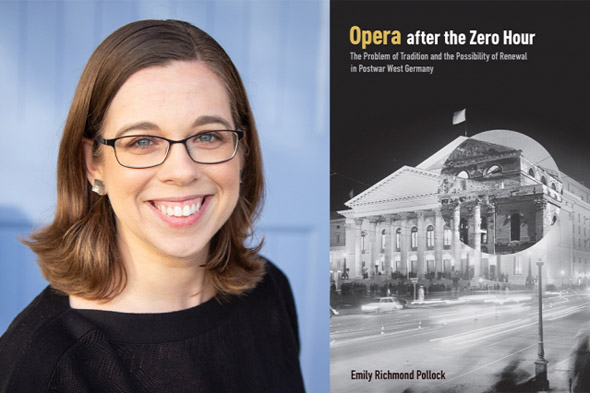A new act for opera
Emily Richmond Pollock’s book examines creative attempts to refashion postwar opera after Germany’s “Year Zero.”

“If you look at [cultural] conservatism as interesting, you find a lot of interesting things. And if you assume things that are less innovative are less interesting, then you’re ignoring a lot of things that people cared about.”
— Emily Richmond Pollock, Associate Professor of Music
In November 1953, the Nationaltheater in Mannheim, Germany, staged a new opera, the composer Boris Blacher’s “Abstrakte Oper Nr. 1,” which had debuted just months previously. As it ran, music fans were treated to both a performance and a raging controversy about the work, which one critic called “a monstrosity of musical progress,” and another termed “a stillbirth.”
Some of this vitriol stemmed from Blacher’s experimental composition, which had jazz and pop sensibilities, few words in the libretto (but some nonsense syllables), and no traditional storyline. The controversy was heightened by the Mannheim production, which projected images of postwar ruins and other related tropes onto the backdrop.
“The staging was very political,” says MIT music scholar Emily Richmond Pollock, author of a new book about postwar German opera. “Putting these very concrete images behind [the stage], that people had just lived through, produced a very uncomfortable feeling.”
More SHASS stories about Arts Innovation
Suggested links